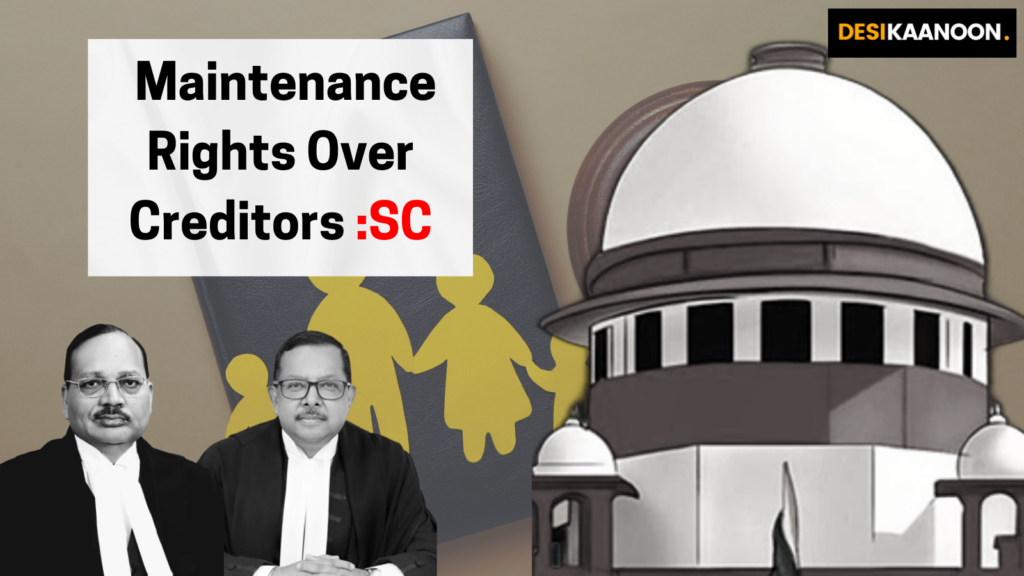Alok Singh
The Supreme Court’s order passed on December 9, (Monday) has now flared up controversy and a serious question amid the suicide case of Bengaluru-based techie Atul Shubash, who committed suicide citing alleged harassment by his estranged wife and in laws by misusing the dowry law.
The Bench of Justices Surya Kant and Ujjal Bhuyan, in Apurva @ Apurvo Bhuvanbabu Mandal v. Dolly & Others, refused to accept the excuse of the husband that held that claims for maintenance owed to an estranged wife and children should be given preference over those of secured creditors, financial institutions, and operational creditors concerning the assets of a husband’s firm undergoing proceedings under the Insolvency and Bankruptcy Code.
The rationale of the Supreme Court is that the Right to maintenance is proportionate with the Right to sustenance, and this is a subset of the right to dignity and life as guaranteed under Article 21 of the Constitution of India.
The Court observed that the right to maintenance, akin to a fundamental right, takes precedence over and supersedes the statutory rights granted to financial creditors, secured creditors, operational creditors, or any other claimants included in the waterfall mechanism under the Insolvency and Bankruptcy Code, 2016 or other comparable legislation.
The Supreme Court instructed that in ongoing cases, the relevant forums must ensure the allocation of maintenance arrears to the entitled parties and categorically stated that objections from secured creditors, operational creditors, or any other claimants would not be considered against the rightful maintenance claims of the respondents.
Furthermore, the Court emphasized that if a husband defaults on paying maintenance arrears to his wife, the family court must adopt coercive measures to ensure compliance, like recovering maintenance from the auction of immovable assets, if necessary.
Additionally, the Supreme Court decided and gave some notable observations in some other cases like:
In a significant decision on 10 December 2024, the Supreme Court, in the case of Dara Lakshmi Narayan & Ors v. State of Telangana & Anr ,under the Bench of Justices B.V. Nagarathna and N. Kotiswar Singh, set aside a Telangana High Court order that refused to dismiss a dowry harassment case.
The Court emphasized the need for caution in such cases to prevent misuse of the law for personal vendettas, noting a growing tendency to implicate innocent family members without specific allegations or evidence. It stressed that generalized accusations should not form the basis of criminal prosecution, while genuine cases must still be pursued diligently.
Similarly, in cases like Parvin Kumar Jain v. Anju Jain ,the Supreme Court under the bench comprising Justices Vikram Nath and Prasanna B Varale, laid down considerations for determining alimony, advising courts to balance factors like the social and financial status of parties, reasonable needs of the dependents, and the financial capacity of the payer.
While guidelines were provided, the Court clarified that these are not rigid rules but factors requiring careful application based on case-specific circumstances.
Case Name:- Apurva @ Apurvo Bhuvanbabu Mandal v. Dolly & Others
Case Number:- Criminal Appeal Nos.5148-5149 of 2024
Bench:- Justices Surya Kant and Ujjal Bhuyan

